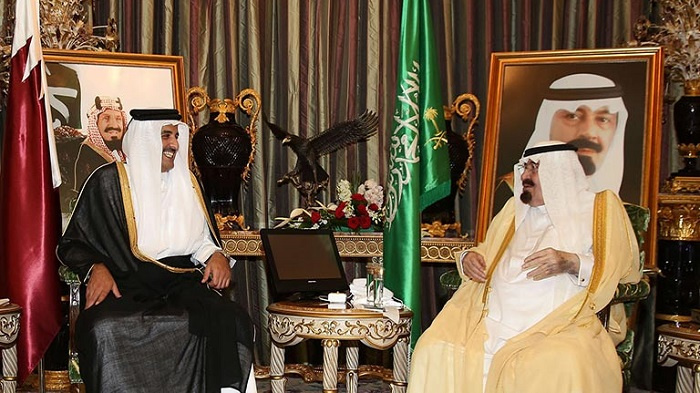For Qatar, There Was No Choice But to Lean Toward Tehran and Ankara

How do you evaluate the Qatari ambassador’s return to Iran? Do you believe Qatar is getting over the diplomatic crisis and experiencing a new situation?
Every country acts in the line with its national interests. When tension soared between Saudi Arabia and Iran, Qatar only downgraded its ties with Iran, calling home its ambassador. Qatari diplomats remained in Iran and political relations continued. But due to new developments, the Qatari ambassador is now back in Tehran.
Since Qatar is under pressure from Saudi Arabia, UAE, Bahrain, and Egypt, suffering particularly from transit difficulties, it had no choice but to expand ties with Iran and Turkey. The Qataris are primarily trying to relieve some pressure due to the sanctions and restrictions imposed. Secondly, Doha is well aware of the fact it has to end the situation or change it, sooner or later. Therefore, it wants to have the upper hand, not to concede to pressure from Saudi Arabia and its allies.
Is this decision driven by Saudi Arabia’s efforts to adopt a softer policy with Iran or is Qatar following its own independent policy with Iran?
Qatar has been generally moving in a direction that messed with Saudi Arabia. As a small country, it adopted a foreign policy that transcended Saudi Arabia’s. Qatar also had an old border dispute with Saudi Arabia that eventually culminated in the current situation. Saudi Arabia had completely taken side with Bahrain in the Qatari-Bahrain dispute, a further deterioration of mutual ties between Saudis and Qataris. The widely-aired Al Jazeera, which was giving Qatar a role transcending its size and population in the international system, also worked in the opposite direction of Saudi policies. One of Riyadh’s conditions for Qatar is to shut down the broadcaster. These accumulated and made Saudi Arabia and its allies look for a pretext to accuse Qatar of supporting terrorism and push the country toward the crisis. Let us remember that Saudi Arabia itself backed ISIS.
Why did Egypt join the move?
The Muslim Brotherhood is a phenomenon that began to form in the 19th century and is remarkably well-known in the Arab world. Turkey and Qatar expressed dissatisfaction with the Sisi coup in Egypt against the Brotherhood government and after the crackdown on the Brotherhood, some of its leaders moved to Qatar. That is why Egyptians are not positive about Doha. Therefore, in order to maintain the status quo, Qatar needs improve its ties with two important countries in the region, namely Iran and Turkey, more so with the latter whose military units have been deployed to the country.
What are the prospects for the crisis? Will Saudi Arabia’s approach make the situation tenser?
These countries will eventually have to get along. If they choose military action, Turkey’s military is there. It may even be soon backed by Iran. A likely coup in Qatar has also been brought up. It has been a tradition among Arab sheikhdoms, coups by son against father or brother against brother. A coup of the kind could happen inside Qatar, to prevent infiltration by outside force. Turkey’s involvement and Qatar’s reliance on Ankara reduces the chance of military action.
It seems that Qatar’s relations with Iran will improve more and more because the sieging sides demanded Doha to severe ties with Iran. Qatar tries to have better ties with Iran, in response to the demand, in order not to concede to pressures. And it is perfectly normal for countries in such deadlocks to try to find logical solutions to neutralize foreign pressure.
How do you evaluate US’ position on the crisis? Why did it fail to find a solution?
The US views the situation business-wise. It has a $110b deal with Saudi Arabia and a separate $25b deal with Qatar. It has an airbase in Qatar, giving it endless influence there. It needs to be there and recommends Saudi Arabia to get along with Qatar. However, the difference is too deep to be easily resolved. Many other countries have offered to mediate in an appropriate atmosphere, which is not in sight now.

